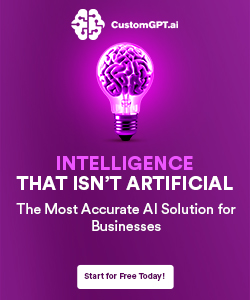Just as technology evolves, so too does artificial intelligence, reshaping industries and influencing daily life. In this blog post, you will discover the latest trends and developments in AI that are necessary for staying ahead in your field. From advancements in machine learning to ethical considerations, understanding these shifts will empower you to navigate the future with confidence. Explore how AI is not only impacting businesses but also transforming your personal experiences and decision-making processes.
Current Trends in AI
Your understanding of artificial intelligence is imperative, as it continues to evolve rapidly. The field is witnessing significant advancements, from machine learning innovations to breakthroughs in natural language processing, all of which are reshaping industries and enhancing user experiences. Keeping up with these trends will empower you to leverage AI technologies effectively in your personal and professional life.
Advancements in Machine Learning
Along with traditional algorithms, deep learning techniques are becoming increasingly powerful. These advancements enable better predictive analytics, image recognition, and anomaly detection, allowing you to harness more accurate data-driven insights than ever before.
The Rise of Natural Language Processing
With the growing capabilities of AI, natural language processing (NLP) is making significant strides in understanding and generating human language. This trend is transforming how you interact with technology, providing more intuitive communication through chatbots, virtual assistants, and advanced text analytics.
In fact, NLP’s evolution is paving the way for applications that can comprehend context, sentiment, and intent, enhancing user experience significantly. Tools like sentiment analysis, machine translation, and voice recognition systems are just a few examples of how you can leverage NLP in your daily tasks. As these technologies mature, they enable smarter interactions that will allow you to work more efficiently and connect seamlessly with digital applications.

AI in Industry
There’s a significant shift happening in various industries as AI technologies become increasingly integrated into everyday operations. From manufacturing to retail, AI is enhancing efficiency and transforming traditional business processes, enabling you to focus on strategic decision-making rather than mundane tasks. As organizations adopt AI, you can expect to see improved productivity, cost savings, and innovative solutions tailored to meet the demands of a rapidly changing market.
Transforming Healthcare
Across the healthcare sector, AI is playing a transformative role in patient care and medical research. You can now access advanced diagnostic tools that analyze medical data quickly and accurately, assisting healthcare professionals in making informed decisions. This technology not only streamlines administrative processes but also improves patient outcomes through personalized treatment plans and early intervention.
Revolutionizing Finance
About the finance industry, AI is reshaping how you manage investments, assess risks, and detect fraud. By harnessing machine learning algorithms, financial institutions can analyze vast datasets to identify patterns and trends, enabling you to make better-informed decisions in portfolio management and risk assessment.
Further advancements in AI technology are enhancing predictive analytics, offering you insights into market trends and consumer behavior. This capability allows financial analysts to proactively adjust strategies, providing you with a competitive edge. Additionally, AI-powered chatbots and virtual assistants streamline customer service, making it easier for you to access information and support without delays. The combined effect of these innovations is a more efficient and responsive financial landscape that adapts to your needs.
Ethical Considerations
One of the pressing challenges in the rapidly advancing field of AI is the need for ethical considerations. As you engage with AI technologies, it’s necessary to reflect on the implications of algorithms and decision-making processes that can significantly influence society. Understanding the ethical landscape not only ensures sustainable innovation but also promotes public trust, which is vital for the continued growth of AI.
Bias and Fairness in AI
With the increasing reliance on machine learning algorithms, bias and fairness have emerged as significant concerns. You must be aware that AI systems can inadvertently perpetuate or amplify biases present in the data they are trained on. This can lead to unfair treatment or discrimination, highlighting the need for you to advocate for transparency and accountability in AI applications to ensure that outcomes are equitable for all individuals.
Responsible AI Development
One of the key aspects of responsible AI development involves adopting ethical frameworks that prioritize human welfare and minimize harm. You should be proactive in ensuring that AI technologies are designed to serve the greater good while being mindful of potential biases and impacts on various communities.
Indeed, responsible AI development requires collaboration among stakeholders, including technologists, ethicists, and policymakers. By engaging in interdisciplinary dialogue, you can contribute to the creation of guidelines that foster innovation while addressing ethical concerns. Ensuring that AI systems are developed with fairness, transparency, and accountability will not only enhance their effectiveness but also guarantee their acceptance and trustworthiness in society.
AI and Automation
To understand the trajectory of AI and automation, you must explore their integration across various industries. As machine learning and robotics evolve, businesses are increasingly adopting AI technologies to streamline operations, enhance decision-making processes, and improve efficiency. This shift not only revolutionizes traditional workflows but also drives innovation in product and service delivery, creating a new landscape for future growth and opportunities.
Impact on the Workforce
About the impact of AI on your workforce, you need to consider both the challenges and benefits it presents. On one hand, automation may result in job displacement, especially in repetitive roles. On the other hand, it fosters the creation of new positions that require advanced technological skills, prompting a necessary evolution in workforce development and training.
Future of Work in AI-Driven Environments
Below, the future of work in AI-driven environments is marked by a shift towards collaboration between humans and machines. As you navigate this transformation, you’ll find that your role will evolve to complement AI capabilities, focusing on inherently human traits like creativity, emotional intelligence, and strategic thinking. This new dynamic ensures that you can leverage technology to enhance productivity while maintaining the unique value of human intuition.
With a profound understanding of AI’s integration into your workplace, you will be better positioned to adapt to these changes. As industries increasingly embrace AI technologies, anticipate a growing demand for workers who can manage, implement, and interpret AI-driven systems. Emphasizing continuous learning and development will be vital in helping you stay relevant in your career as you engage in creative problem-solving, complex decision-making, and collaborative initiatives with AI solutions.
AI in Everyday Life
Not only is AI transforming industries, but it is also seamlessly integrating into your daily routines. From simplifying chores to providing personalized recommendations, AI technology is making life more convenient and enjoyable. You will likely notice AI’s growing presence in various facets of your day-to-day activities, enhancing everything from your morning coffee to evening entertainment.
Smart Homes and Personal Assistants
Between connected devices and intelligent personal assistants, creating a smart home is becoming more accessible than ever. You can control your home environment with just a voice command or a tap on your smartphone, ensuring comfort and energy efficiency. Whether it’s adjusting the thermostat or managing your grocery list, AI is there to help simplify everyday tasks.
AI in Entertainment and Media
On the entertainment front, AI is revolutionizing how you consume and interact with media. Streaming services leverage AI algorithms to offer personalized recommendations, helping you discover content tailored to your tastes. This trend is not only making your viewing experiences richer but also transforming content creation and distribution strategies within the industry.
Entertainment is evolving rapidly with the integration of AI technologies, allowing you to enjoy tailored content that aligns with your preferences. From AI-driven scripts to personalized playlists in music apps, the way you engage with various media forms is becoming more customized. Moreover, AI is enhancing virtual reality experiences and interactive gaming, providing immersive engagement options that cater to your unique interests.
The Global AI Landscape
Many nations around the world are strategically positioning themselves in the evolving landscape of artificial intelligence. You’ll find that AI policies and investments are not just limited to tech-savvy countries; emerging economies are also embracing AI technologies. This diversification enhances the potential for innovation and competition, ultimately shaping the future AI ecosystem that you should keep an eye on.
AI Initiatives Worldwide
One of the most interesting aspects of the global AI landscape is the plethora of initiatives emerging across different regions. Countries like China, the United States, and members of the European Union are pouring resources into research, development, and ethical frameworks. This means you’ll be witnessing a spectrum of projects that aim to harness AI for various applications, from healthcare to agriculture, each contributing to a more advanced technological future.
International Collaboration and Competition
Before venturing into the details, it’s important to recognize that the AI arena is characterized by both international collaboration and fierce competition. Countries are not only competing to lead the AI race but are also forming strategic alliances to share knowledge, resources, and innovations. This dual dynamic influences how you will experience AI advancements globally, with potential partnerships leading to faster progress.
But it’s important to acknowledge that while cooperation can yield shared benefits, underlying rivalries can also spark tensions and ethical concerns. Nations are vying for supremacy in AI technologies, which might slow down collaborative efforts in certain areas. As you navigate this landscape, you may notice the balance between collaboration and competition shaping regulations and innovations, creating a complex web of motivations and outcomes that directly affect your engagement with AI technologies.
Conclusion
So, as you navigate the rapidly evolving landscape of AI, staying informed about the latest trends and developments is crucial for leveraging its full potential in your personal and professional life. The integration of AI into various industries will reshape the way you approach tasks, enhance decision-making, and drive innovation. By understanding how emerging technologies like machine learning and natural language processing can benefit you, you’ll be well-prepared to adapt and thrive in an increasingly AI-driven world.
Q: What are the key trends driving the future of AI development?
A: Several key trends are shaping the future of AI development. Firstly, advancements in machine learning techniques, particularly deep learning, continue to improve AI’s ability to process and analyze complex data sets. Secondly, the integration of AI with other emerging technologies, such as the Internet of Things (IoT) and blockchain, is enhancing its applications across various sectors. Finally, the push for more ethical and transparent AI practices is leading to the development of frameworks that prioritize accountability and fairness in AI systems.
Q: How will AI impact the job market in the coming years?
A: The impact of AI on the job market is expected to be significant and multifaceted. While some jobs may be displaced due to automation, new opportunities will likely arise in AI development, maintenance, and oversight roles. Additionally, as AI systems take on routine tasks, human workers may find themselves focusing on higher-level problem-solving and creative roles. Continuous learning and adaptation will be crucial for workers to thrive in an evolving job landscape shaped by AI technologies.
Q: What ethical considerations are emerging with the rise of AI technologies?
A: As AI technologies evolve, ethical considerations are becoming increasingly important. Key concerns include data privacy, algorithmic bias, and the potential for misuse of AI in surveillance or military applications. There is a growing demand for regulatory frameworks that address these issues while promoting innovation. Initiatives focusing on ethical AI development emphasize the significance of transparency, accountability, and inclusivity in creating AI systems that are aligned with societal values.










